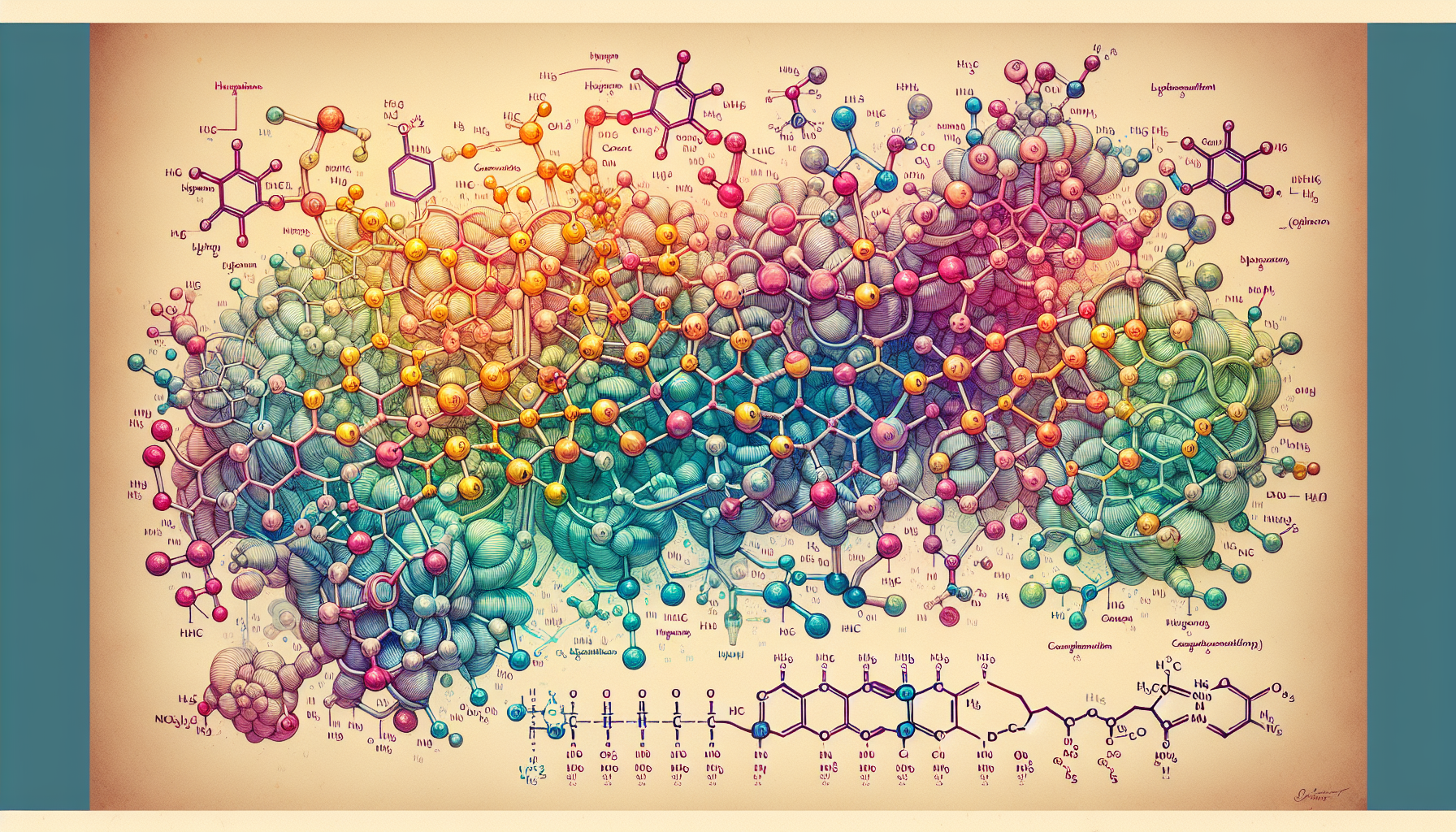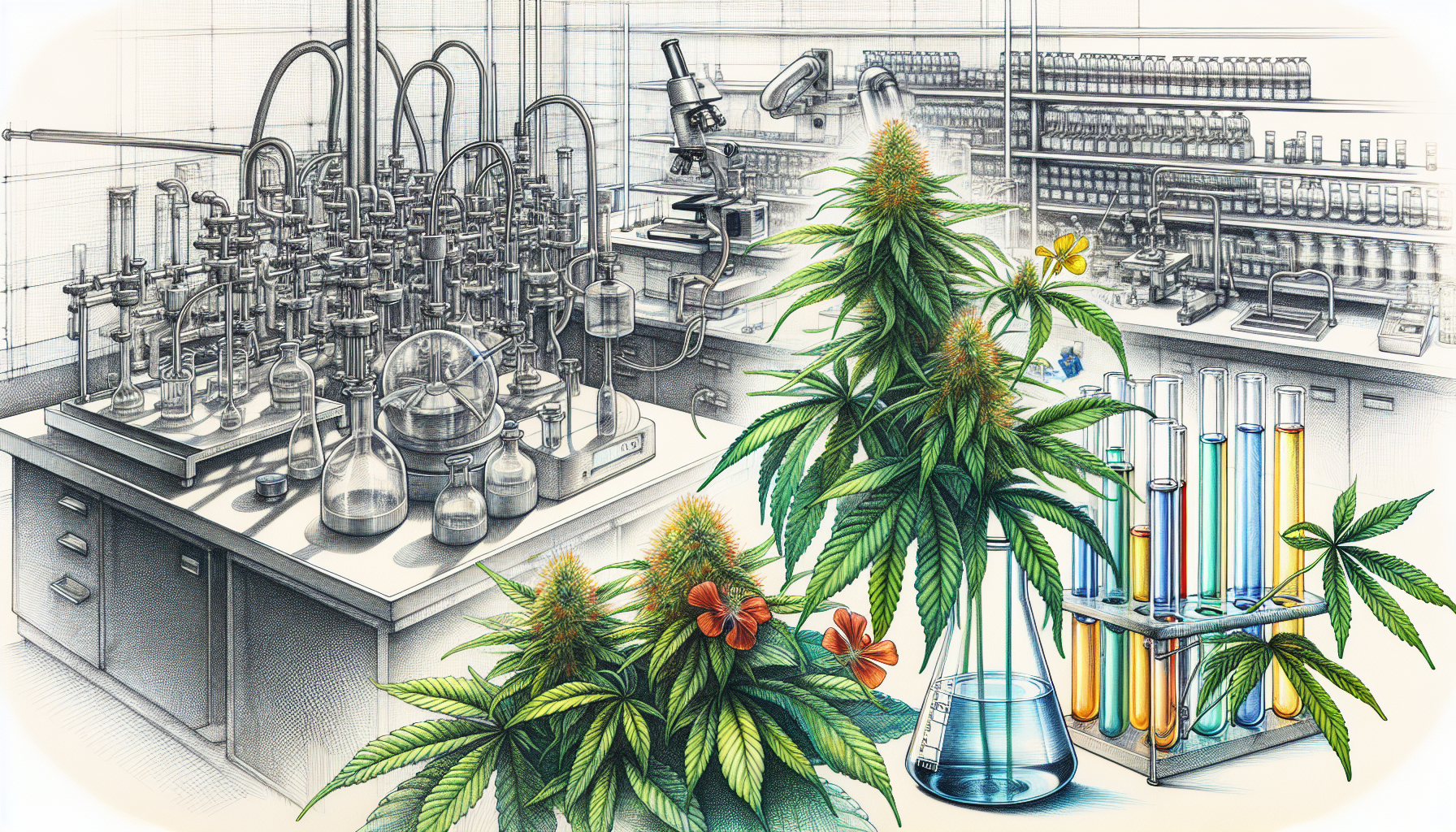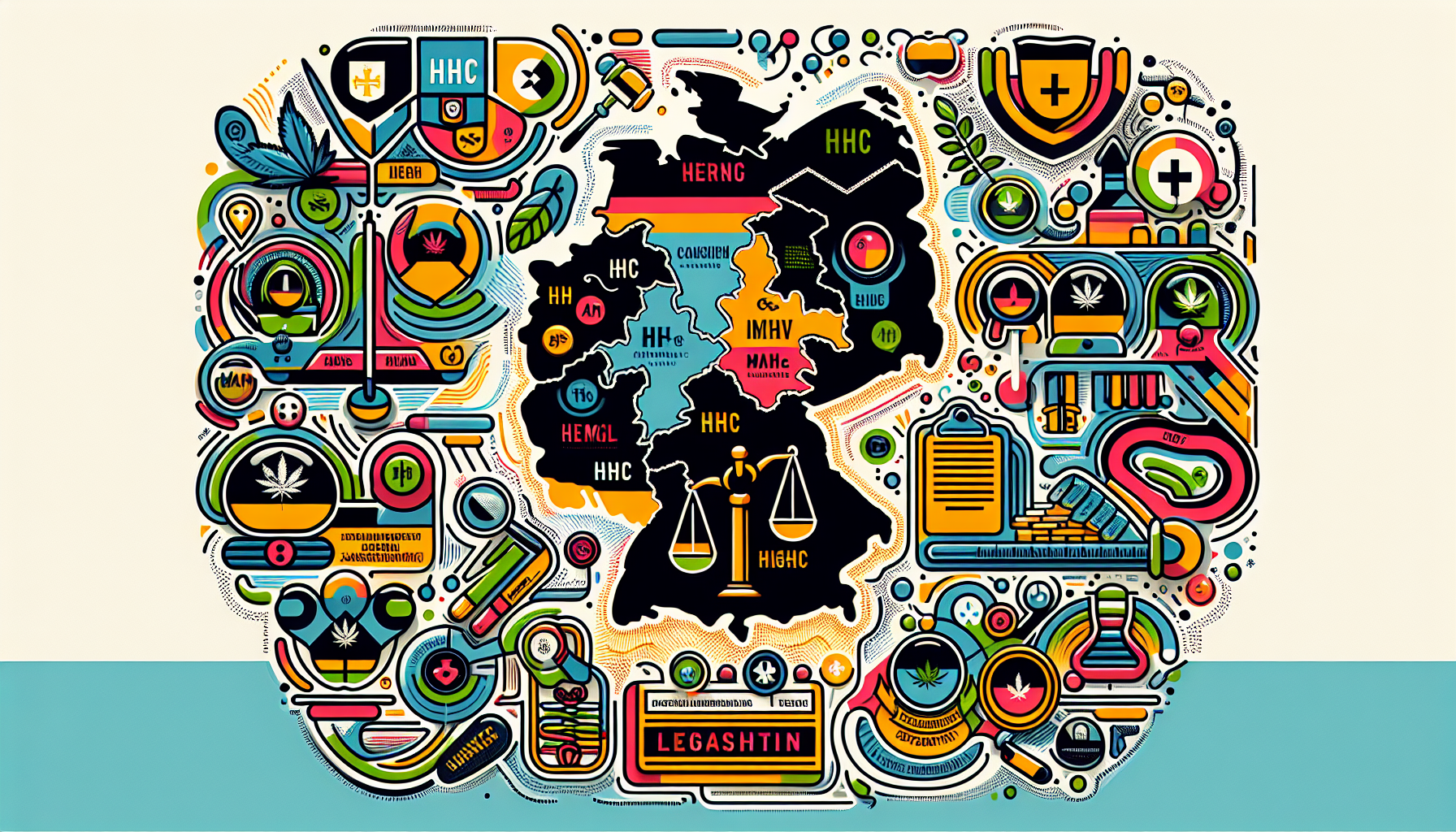HHC Legal: Current status and consequences of the legal situation in Germany
Is HHC legal? Since June 27, 2024, HHC has been officially banned in Germany. In this article, we explain the background to this ban and what it means for consumers.
The most important things at a glance
-
HHC was banned in Germany on June 27, 2024 under the New Psychoactive Substances Act (NpSG) to protect public health.
-
The production of HHC is complex and mostly synthetic, which leads to health risks and a lack of regulation.
-
10-OH-HHC is considered a potential legal alternative to HHC, but is in a legal grey area in Germany.
What is HHC?

HHC, or hexahydrocannabinol, is a semi-synthetic cannabinoid that is only present in minimal amounts in the hemp plant. Its extraction is extremely complex because it is present in such small quantities in cannabis that synthetic production is usually necessary. But what makes HHC so special?
The answer lies in its structural similarity to THC, the most well-known psychoactive cannabinoid. This similarity means that HHC can have similar effects to THC, making it an interesting alternative. The psychoactive effects of HHC and THC are very similar, which means that HHC also affects the endocannabinoid system in the brain and can therefore produce similar highs. HHC is often considered a drug, especially in the context of legal regulations and the potential health risks.
Despite these similarities, HHC and THC differ in some important ways:
-
THC is strictly regulated in many countries.
-
HHC has long been a legal alternative because it was not subject to the same legal restrictions.
-
However, HHC’s legal situation has recently changed.
The complex manufacturing and legal challenges make HHC a fascinating but controversial topic.
The production of HHC

HHC is usually produced synthetically to compensate for the low natural occurrence in the hemp plant. This process is complex and requires specialized laboratory conditions. HHC is usually synthesized through a series of chemical reactions that change the original structure of the hemp plant.
Several chemical changes can occur during the production of HHC. One of the most common modifications is the addition of a hydroxyl group to the tenth carbon atom, resulting in 10-OH-HHC. These chemical processes are crucial to achieving the psychoactive properties of HHC and distinguishing it from other cannabinoids.
The synthetic production of HHC allows the substance to be produced in larger quantities than would be possible through natural extraction. This has led to the availability of HHC products on the market, from HHC flower to HHC vapes and gummies. But with increased availability comes legal and health challenges, which we'll look at in more detail in the next section.
Is HHC legal in Germany?

The ban on HHC officially came into force on June 27, 2024 through the New Psychoactive Substances Act (NpSG). Previously, HHC was legal in Germany, which led to its wide availability on the market. This law aims to protect public health and strengthen the regulation of new psychoactive substances. The inadequate regulation and the variety of HHC products on the market led to concerns about their quality and purity.
The question 'is HHC legal in Germany' was answered differently for a long time, as HHC was not explicitly listed in the Narcotics Act. The introduction of the HHC ban was necessary to preventively control the abuse potential of such substances. After the ban, the sale and production of HHC is illegal in Germany. Dealers must stop the production and sale of HHC to avoid legal consequences.
Why is HHC legal? This question has been asked often, as HHC comes from the hemp plant and was not listed in the Narcotics Act, which was used by manufacturers and consumers as an argument for its legitimacy. With HHC officially classified as illegal from June 27, 2024, consumer education about cannabinoids is becoming increasingly important. Consumers must be aware that HHC is not legally available in Germany. HHC can produce similar psychoactive effects to THC, but has an unclear legal situation in many countries.
The legal situation of HHC in Germany is clear: it is banned. This means that all HHC products must be removed from the market and both retailers and consumers must comply with the new regulations. The reasons for this ban and the associated risks are explained in the next section.
Reasons for the ban on HHC
HHC has been heavily regulated due to its psychoactive properties and uncertain long-term studies. The government regulated HHC to protect public health due to a lack of studies on long-term effects. Mental disorders and anxiety symptoms are potential long-term effects of HHC use, especially at high doses.
HHC was not listed in Annex I of the Narcotics Act as a ‘non-marketable narcotic drug’, which led to uncertainty in its legal classification.
The long-term effects have not yet been sufficiently investigated and the possible risks are also unclear.
The main reasons for the ban are:
-
health risks
-
lack of regulation
-
lack of long-term studies that could prove safety
-
lack of regulation and control
-
concerns about abuse
These points are further reasons for the ban.
These reasons explain why the government decided to ban HHC. The lack of research and the potential risks to public health made a ban necessary. The impact of this ban on the market and consumers is examined in the next section.
Effects of the HHC ban

The ban on HHC could lead to consumers turning to illegal markets or unsafe products. This poses a significant risk to consumer health as the quality and purity of these products often cannot be guaranteed. The ban on HHC could lead to a decline in quality assurance of HHC products, which could allow dangerous substances to remain undetected in the products.
The ban in Germany has significant implications for the cannabinoid industry and scientific research.
Companies in the hemp industry will need to adapt their business strategies to comply with the new regulatory requirements. This could impact the availability of products to consumers and lead to a change in the market landscape. Companies will need to rethink their business models to comply with the new regulatory requirements.
Consumers should be aware of the differences between HHC and other cannabinoids, as the ban could also impact the entire range of cannabis products. The need for consumer education is greater than ever to ensure consumers can make informed choices. One possible alternative to HHC, which we will introduce in the next section, is 10-OH-HHC.
New Psychoactive Substances Act: Impact on HHC
The New Psychoactive Substances Act (NpSG) has had a significant impact on the status of HHC in Germany. By including HHC in the NpSG, it has been officially banned. This means that the possession, sale and manufacture of HHC in Germany can now be prosecuted. The change in the legal status of HHC also has far-reaching consequences for the hemp industry and research in the field of cannabinoids.
The inclusion of HHC in the NpSG will further strengthen the regulation of new psychoactive substances in Germany. This is intended to protect public health and ensure that only safe and well-researched substances reach the market. For the hemp industry, this means that companies must adapt their product ranges and adapt to the new legal requirements. Research in the field of cannabinoids could also be affected by the ban on HHC, as the availability of this substance for scientific studies is limited.
HHC age restriction and sale
In Germany, there is no specific age restriction for purchasing HHC products. However, the sale of HHC products to minors is strictly prohibited. Most suppliers of HHC products have introduced an age restriction of 18 years or older to meet legal requirements and ensure the protection of minors.
However, it is important to note that consumption of HHC products can have harmful effects on brain development, especially in adolescents and young adults. Studies have shown that consumption of psychoactive substances at a young age can increase the risk of mental disorders and other health problems, so parents and guardians should ensure that adolescents do not have access to HHC products.
Alternative to HHC: 10-OH-HHC
10-OH-HHC is considered a possible alternative to HHC. It is a synthetic cannabinoid that is produced in the body from HHC and affects the endocannabinoid system. This substance could be a promising alternative to HHC due to its similar properties.
Below we will take a closer look at 10-OH-HHC and its legal situation.
What is 10-OH-HHC?
10-OH-HHC is a synthetic cannabinoid derived from HHC. It affects the endocannabinoid system, similar to other cannabinoids. This substance has unique properties that set it apart from other cannabinoids and give it promising potential.
The chemical structure of 10-OH-HHC is slightly different from that of HHC, which may result in a longer duration of effects. These properties make 10-OH-HHC an interesting alternative for consumers looking for legal and safe options.
Legal status of 10-OH-HHC
10-OH-HHC is currently in a legal grey area in Germany, as it is not explicitly listed in the Narcotics Act. The legal regulations on 10-OH-HHC have not yet been finally clarified and could be subject to future changes.
Due to its structural similarity to regulated cannabinoids, 10-OH-HHC could be subject to the New Psychoactive Substances Act. In Germany, the legal classification of 10-OH-HHC is currently unclear and could be influenced by its chemical similarity to regulated substances.
Consumers should therefore regularly inform themselves about current changes in the law in order to avoid legal consequences.
European countries with HHC ban

HHC is banned in many European countries. In Austria, HHC is banned as a new psychoactive substance, making trade and production illegal. Estonia was the first EU country to introduce HHC as a banned psychotropic substance. Norway and Finland have also added HHC to the list of banned substances.
While HHC has been considered legal in Germany, HHC is illegal in countries such as Austria and Estonia.
In addition to Austria, countries such as Poland and Slovakia are also affected by a HHC ban. HHC is also illegal in many European countries, including Belgium, France and Italy. These different legal approaches show how complex the regulation of new psychoactive substances is in Europe.
The international development of HHC legislation shows that many countries have similar concerns about public health and consumer safety. It remains to be seen how the legal situation will develop in the coming years.
Consumer education and future developments
The legislation aims to remove legal uncertainty for consumers and retailers in relation to HHC. The inclusion of HHC in the NpsG shows the need for consumers to inform themselves about new regulations and their impact on the market in order to be able to make informed decisions. The legal uncertainty regarding the classification of HHC and similar substances will encourage consumers to become more actively informed about the legal situation and the relevant developments.
Research on HHC shows that users often suffer from psychological problems and physical side effects. 10-OH-HHC offers similar properties to HHC, but with a longer duration of effects. This substance may be a safer and more legal alternative, but again, consumers need to stay informed of potential legal changes.
Future developments in legislation and research on HHC and 10-OH-HHC will have a major impact on the market and consumers. It is important that consumers are aware of the latest developments and their impact on the use and possession of cannabinoids.
Legal advice and information
There are various options for people who want to find out about the legal status of HHC in Germany. The official website of the Federal Ministry of Health provides comprehensive information about the New Psychoactive Substances Act (NpSG) and the specific effects on HHC. Here, consumers and retailers can find current legal texts and explanations to inform themselves about the legal framework.
In addition, there are lawyers and legal advisors who specialize in the field of drug and addiction laws and offer personalized advice. These experts can help clarify legal issues and ensure that you comply with the applicable laws. It is advisable to regularly stay informed about the latest developments and changes in legislation in order to avoid legal consequences and make informed decisions.
Summary
The discussion about HHC shows how complex the regulation of new psychoactive substances is. HHC, a semi-synthetic cannabinoid, has similar psychoactive effects to THC due to its structural similarity, which makes it an interesting but also risky substance. The synthetic production and the lack of regulation ultimately led to HHC being banned in Germany.
The health risks and insufficient research into the long-term effects were key reasons for the ban. While the ban brings with it many challenges for consumers and companies, the possible alternative 10-OH-HHC offers new perspectives, which are also legally uncertain. It remains to be seen how the legislation and the market will develop in the coming years.
Frequently Asked Questions
What is HHC?** **?
Is HHC legal in Germany?** **?
What is HHC?** **?
HHC, or hexahydrocannabinol, is a semi-synthetic cannabinoid found in small amounts in the cannabis plant and is structurally similar to THC. It has potential psychoactive effects.
Is HHC legal in Germany?
HHC is not legal in Germany as it has been banned by the New Psychoactive Substances Act (NpSG) since June 27, 2024. It is important to comply with the applicable laws.
Why was HHC banned in Germany?
HHC was banned in Germany because of its psychoactive properties and the associated health risks. In addition, there are insufficient long-term studies that could prove the safety of the substance.
What is 10-OH-HHC?
10-OH-HHC is a synthetic cannabinoid formed from HHC in the body that affects the endocannabinoid system and has potential effects on well-being and mood.
Which European countries have banned HHC?
HHC is banned in Austria, Estonia, Norway, Finland, Poland and Slovakia.

Share:
Cannabidiol Shop: Buy Premium CBD Products Online
What is HHC? Everything about the effects and risks of the new cannabinoid